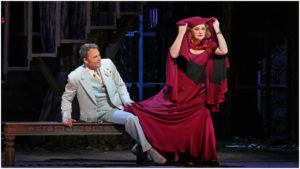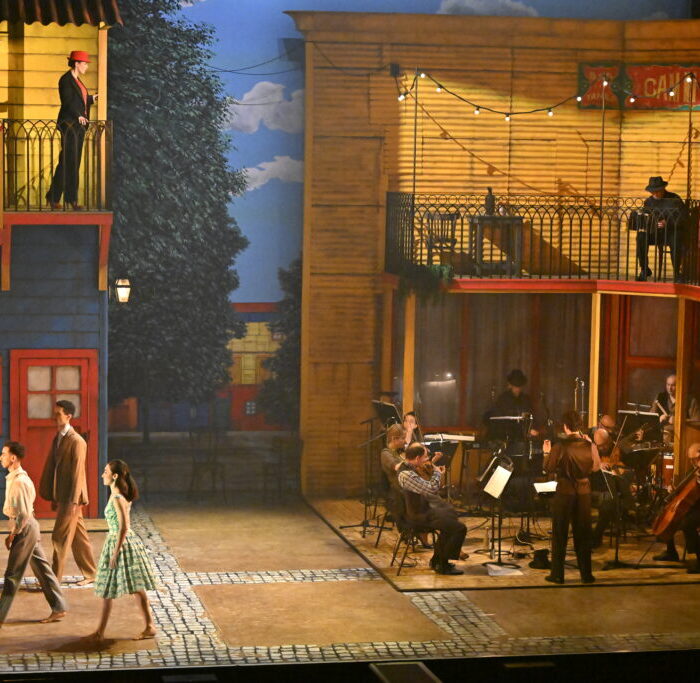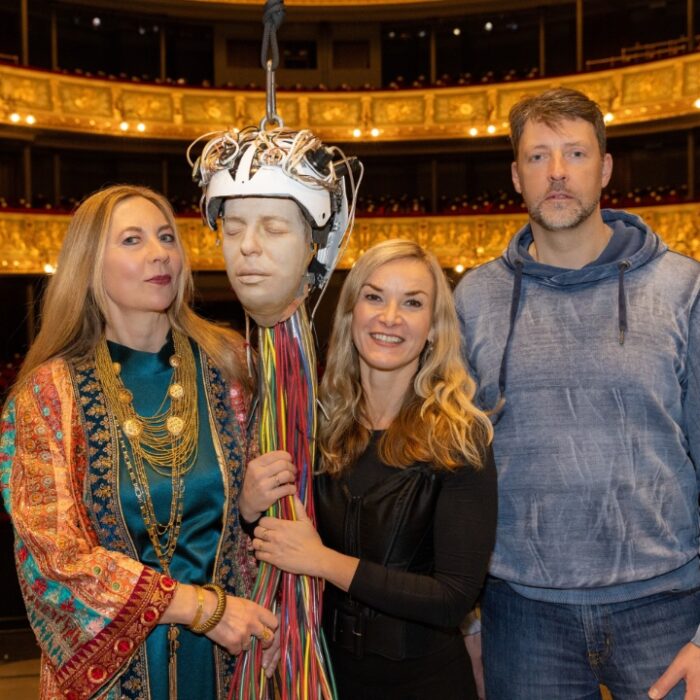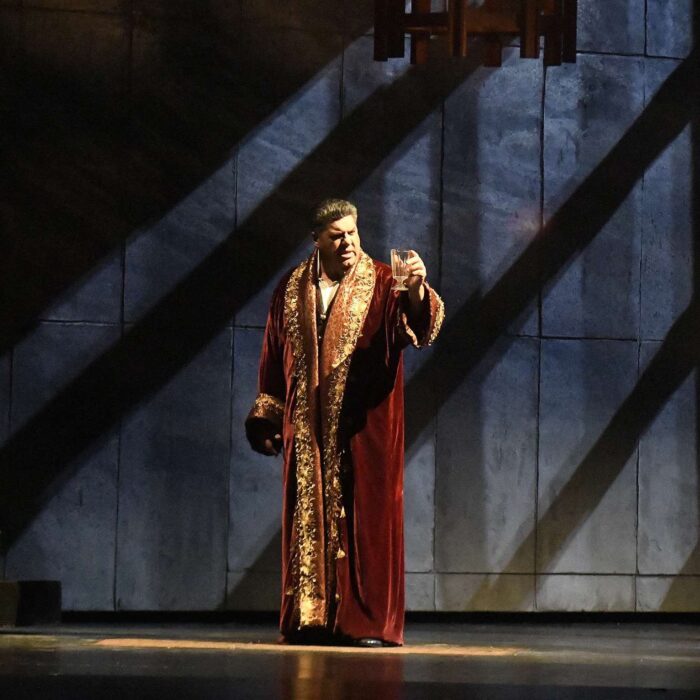
Metropolitan Opera 2021-22 Review: Le Nozze di Figaro
Daniele Rustioni Leads a Wonderful Cast in Mozart’s Masterpiece
By Logan Martell(Credit: Ken Howard)
On January 8, 2022, the Metropolitan Opera presented the season premiere for Mozart’s “Le Nozze di Figaro.”
The matinee performance saw the audience gather for an afternoon of musical comedy. While not a full house, there was a respectable turnout amid concerns over the Omicron variant which has seen closures and cancellations worldwide. As people found their seats, the crew could be seen putting what looked like the finishing touches for the set’s lighting, but all seemed to go off without any major hitch. Leading the artists was conductor Daniele Rustoni, having taken over from Maestro Nezet-Seguin.
Lovebirds
In the titular role, baritone Ryan McKinny handled the vocal and physical demands with certainty and finesse. A notable example of his control came in his opening duettino with Susanna, where McKinny recited measurements while adopting numerous poses, including a plank; that is, using his body as a ruler. His cavatina “Se vuol ballare,” finely alternated between the contrasting moods of outrage and secrecy with bold, incensed tones. Through his countless antics, McKinny retained a rich and clear quality of voice, even when dragging Cherubino about the stage during the martial fun of “Non piu andrai,” or when jealously storming around for the Act Four aria “Aprite un po’ quegl’occhi.”
As Susanna, soprano Lucy Crowe brought great energy and charm during her time onstage. Her opening duettino with Figaro quickly established their playful and affectionate dynamic before getting him up to speed on The Count’s advances. She often proved a splendid partner throughout much of her interactions and shared numbers, but it was her Act Four aria “Deh vieni non tardar” where Crowe seized her moment alone and delighted the audience with beckoning phrases and an enchanting cadenza.
Fraught Marriage
As Count Almaviva, bass Adam Plachetka’s interpretation played up the buffa elements of the work, being animated, neurotic, and frequently overwhelmed. He successfully brought as much comedy as he could from the sleazier nature of the character as well. While the more menacing aspects could be heard vocally in numbers such as “cosa sento” and “hai gia vinta la causa,” and seen through how Plachetka used his large frame, much of it felt tucked away to make for a more comedic villain. Though this approach could have easily become repetitive, Plachetka often garnered laughter, and I personally enjoyed seeing The Count regularly teetering on the edge of a mental breakdown.
In the role of The Countess, Golda Schultz was frequently captivating. Her Act Two aria “Porgi amor” made for a sonorous and tender break from the verve and humor that carries so much of the opera, though she was by no means a bystander in the unfolding events. Her interactions with the rest of the household saw ample opportunity for Schultz to engage in comedy; such as the scene and trio with Susanna and The Count, “Susanna, or via sortite.” Her rendition of “Dove sono I bei momenti” was full of poignancy and nostalgia as she mused on former days, caressing these thoughts with a gorgeous, sustained sigh before the da capo. As the one who gets the last word in forgiving The Count, Schultz handled this moment with great tenderness which managed to bring everyone together at last.
Bringing the Laughs
In the role of Cherubino, mezzo Isabel Leonard was a source of sonority and comedy throughout. Her aria “Non so piu cosa son, cosa faccio” carried a splendid, passionate charm through the opening allegro vivace, which made the softness and consideration of the allegro section all the more impactful. While Leonard to no stranger to trouser roles, to watch her in the role of a man pretending to be a woman in later scenes was consistently delightful and did not fail to draw laughter from the audience.
As Dr. Bartolo, Maurizio Muraro showed not only great comedic timing, but a resonance and clarity that highlighted his time on stage. His scheming aria “La vendetta” was both crisp and bombastic as he constantly rattled Marcellina from her thoughts and makeup, and the scene where his relation to Figaro was revealed was met with laughter after almost every beat. Opposite him as Marcellina, Elizabeth Bishop made for a splendid partner, her own exuberance established early on during her sparring with Susanna. When she pieced together Figaro’s true identity, her spoken delivery of the line “Oh, Dio,” brought laughter as her dizzying realization seemed to pause all the drama for just a moment.
The afternoon’s cast was full of solid artists, such as Giuseppe Filianoti, who made for a slick and devious Don Basilio, and Erika Baikoff, who was charming in her moments with McKinny, Plachetka, and Leonard.
Under Maestro Daniele Rustoni the music kept a fine charge but did not lack for the care and attention for the work’s more impactful moments. In all it was a tight and true performance of the madcap comedy, with the lovely pairings of the cast making the most of the music and the laughter.



